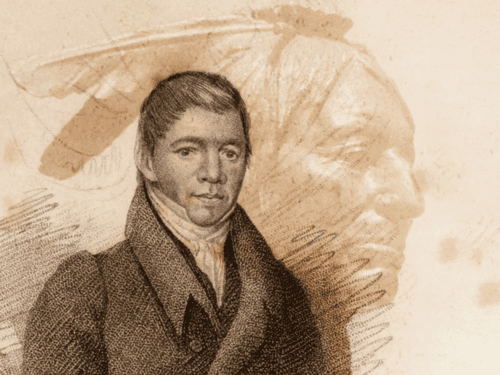A Community Reading of William Apess’s Eulogy on King Philip (Metacom)

Why is it that historic figures such as Samuel Adams, James Otis, and John Hancock are remembered as heroes, yet Metacom—the Wampanoag leader whom the English called King Philip—is virtually unknown? The year 2025 will mark the 350th anniversary of the devastating and bloody conflict between New England colonists and Indigenous people that is most commonly known to history as King Philip’s War. However, very little is known about his campaign to end English mistreatment and his fight for independence and property rights for his people. Throughout the 1830s, Willam Apess, a Pequot minister and activist, continued fighting for Indian rights.
Revolutionary Spaces is proud to celebrate the legacy of both Apess and Metacom at A Community Reading of William Apess's Eulogy on King Philip (Metacom), where we will commemorate the ideals for which they fought—ideals that were not so different from those that Americans fought for in 1775. Join Revolutionary Spaces and its partners, the Institute for New England Native American Studies (INENAS) at the University of Massachusetts Boston and the Northeastern Humanities Center, on Friday, April 28 at Old South Meeting House as we bring together Native Americans in New England and the general public to examine a critical moment in colonial history.
Moderating the evening’s program will be J. Cedric Woods (Lumbee), Director of INENAS. Drew Lopenzina, Professor of Early American and Native American Literature at Old Dominion University, will provide historical context for the eulogy and the 19th-century events that informed Apess’ writing. Guest speakers will then read excerpts from the eulogy followed by a brief panel discussion to critically address the history of Native American conversion to Christianity, the significance of King Philip’s War, and the importance of Apess’ eulogy.
This program is free and open to the public. Doors will open at 6:00 pm and the reading will begin at 6:30 pm. A reception with light snacks and drinks will occur immediately following the program for audience members to connect and celebrate with the community.
Revolutionary Spaces and its partners would like to thank the following funders for their generous support of this program:


